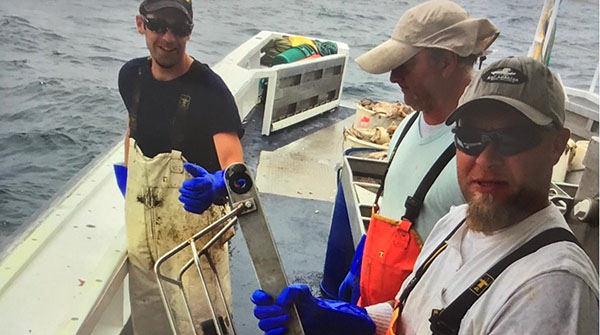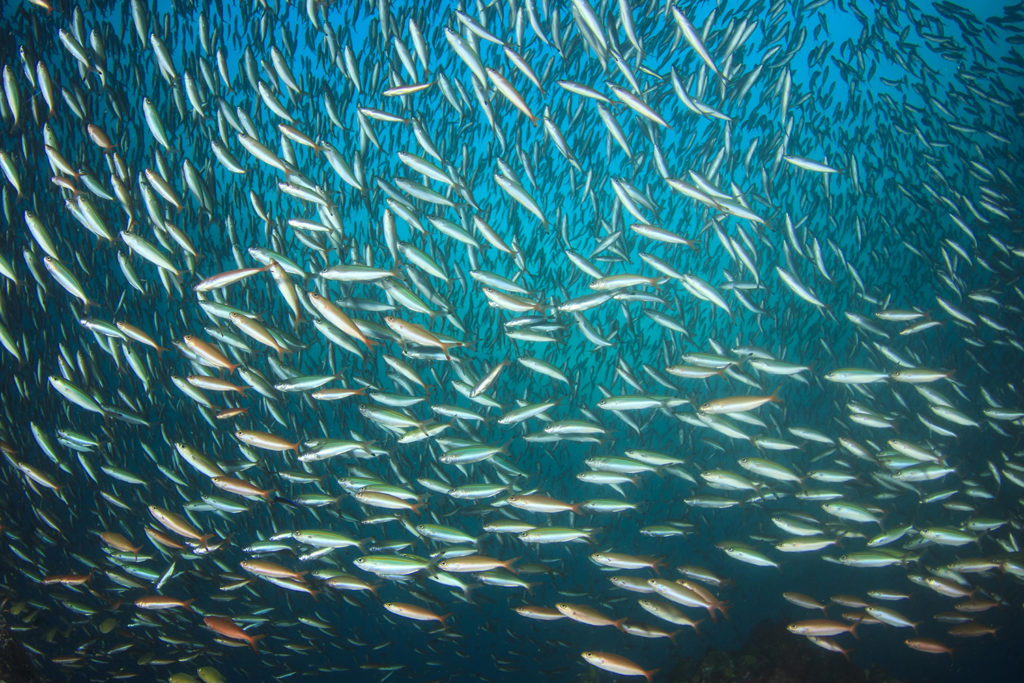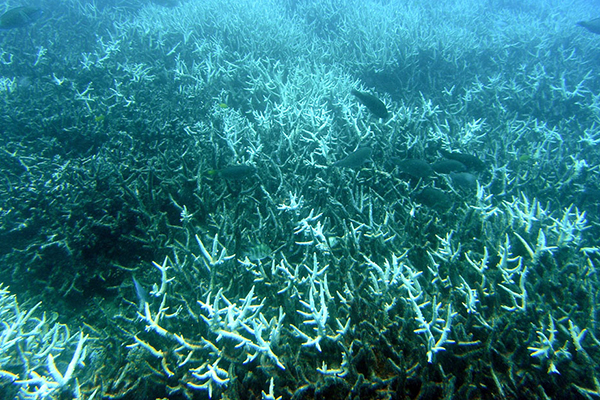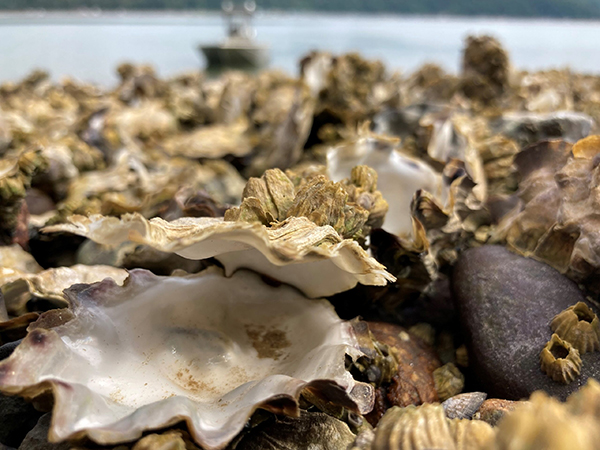Salinity intrusion frequency in Middle Atlantic Bight has increased over 20 years

According to a new study led by Woods Hole Oceanographic Institution (WHOI), mid-depth waters off the United States East Coast are getting saltier – and it could be a result of ocean warming and the effects of climate change.
The study, which was recently published in the Journal of Geophysical Research: Oceans, shows a significant increase in the frequency of warm saltwater intrusions from the deep ocean to the continental shelf along the Middle Atlantic Bight, which extends from the Gulf of Maine to Cape Hatteras, North Carolina.
“The reason the paper is so important is because it quantifies an ocean process changing, potentially as a direct result of ocean warming and more stratification,” said Glen Gawarkiewicz, WHOI senior scientist and the paper’s corresponding author. “These findings could also have major shelf ecosystem implications.”
An intrusion occurs when warm, salty seawater moves toward the edge of the continental shelf, “intruding” on cold, fresh continental shelf water. The findings indicate that more intrusions are moving in at mid-depth and reaching up to 60 miles on shore, carrying the warm offshore water large distances.
“Water in this region is becoming less like the Arctic and more like the tropical Atlantic,” said Gawarkiewicz.
Using data collected from NOAA’s National Marine Fisheries Service Ecosystem Monitoring program, as well as data collected from the fishing industry, the study’s results show that ocean exchange processes have greatly changed over the past 20 years in this region. Despite the profiles of salinity being scattered in space and time, the data showed evidence of numerous mid-depth salinity maximum intrusions, which greatly increased since 1998. A 2003 paper showed how the intrusions were occurring about 10 percent of the time, and this new study finds it occurs 18 percent of the time.
“There is more and more evidence that conditions are changing rapidly across the entire ecosystem, with offshore waters influencing the shelf more frequently and on very different timescales than we have seen in the past,” said Paula Fratanoni, Chief of the Oceans and Climate Branch at the Northeast Fisheries Science Center within the National Marine Fisheries Service, and paper co-author. “It’s imperative that we work to better understand these processes and any potential impacts they might have on critical shelf habitats.”
Gawarkiewicz said these findings are not only important for physical oceanography and climatology research, but for the commercial fishing industry as well.
“This is a tremendous opportunity for dialogue with the fishing community, helping them recognize these mid-depth intrusions once they log a profile,” he said. “Then, they can use it to decide where to fish and focus the bulk of their work.”
Follow the Advocate on Twitter @GSA_Advocate
Now that you've reached the end of the article ...
… please consider supporting GSA’s mission to advance responsible seafood practices through education, advocacy and third-party assurances. The Advocate aims to document the evolution of responsible seafood practices and share the expansive knowledge of our vast network of contributors.
By becoming a Global Seafood Alliance member, you’re ensuring that all of the pre-competitive work we do through member benefits, resources and events can continue. Individual membership costs just $50 a year.
Not a GSA member? Join us.
Author
Tagged With
Related Posts

Fisheries
Scientists warn about climate change effects on fisheries and agriculture in tropical coastal communities
A new study is warning about the effects of climate change on fishing and agriculture in tropical coastal communities.

Responsibility
Study: Climate change will shuffle marine ecosystems in unexpected ways as ocean temperature warms
A study found that, as the ocean temperature warms, fish will continue to exist in certain areas but are not likely to be as abundant.

Responsibility
Study: 2021 breaks record for hottest ocean temperature
New research shows the ocean temperature in 2021 was the hottest ever recorded by humans, and the effects of ocean warming are "far-reaching."

Responsibility
2021 heat wave created ‘perfect storm’ for shellfish die-off
Researchers have produced the first comprehensive report detailing the impacts of the 2021 Pacific Northwest heat wave on shellfish.



